The Bauhaus School May Have Been Short-Lived, but Its Influence on Design Has Endured — Our Editor Explores Why
The Bauhaus design movement may have been a short lived period, but it is still informing how we think about architecture and décor today
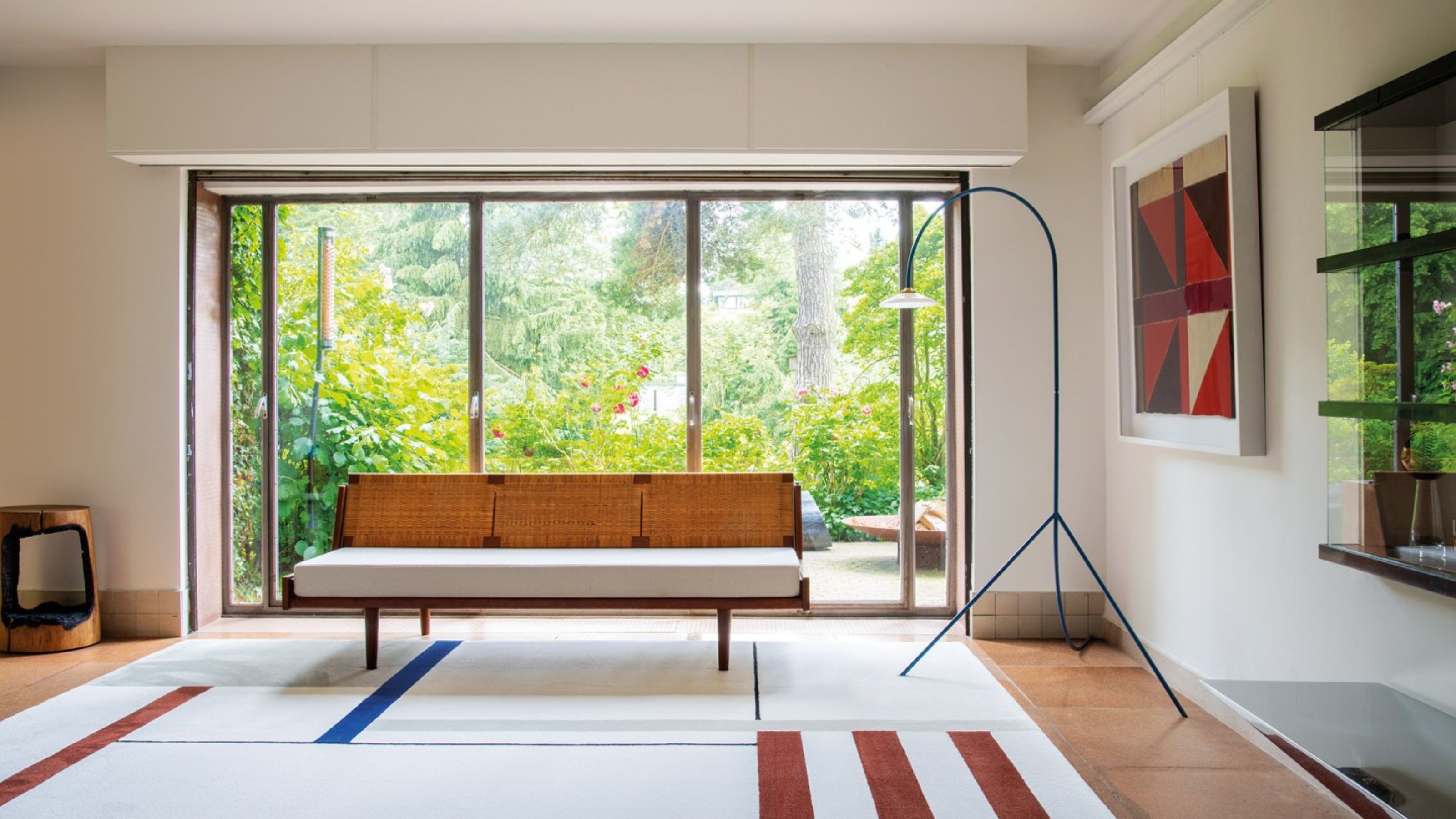
It's hard to believe how short lived the Bauhaus movement was when you consider its lasting impact on modern design. You'll recognize a lot of the names associated with it, whose work still appears in living rooms published in Livingetc today, despite the Bauhaus school lasting for only 14 years.
The curves of the Bauhaus architecture style are hugely influential, and they reflected a change in attitudes and possibility of a new way of life seen in the aftermath of World War I. In fact, as part of my history degree at university I wrote a paper on the subject, looking at whether Bauhaus interiors and architecture was borne out of a new way of living, or whether it caused it (spoiler: they really went hand in hand).
But to understand much of the reasons why modern design looks how it does today, it's crucial to look at this design movement that began in Germany, and spread across the rest of the world. Here's everything you need to know about Bauhaus design.

Pip Rich has been an interiors and design journalist for over 20 years, most of which he's spent exploring influential design concepts and interviewing experts. He's also particularly familiar with the Bauhaus movement, having studied it as part of his history degree at the University of Exeter.
What Is Bauhaus Architecture?
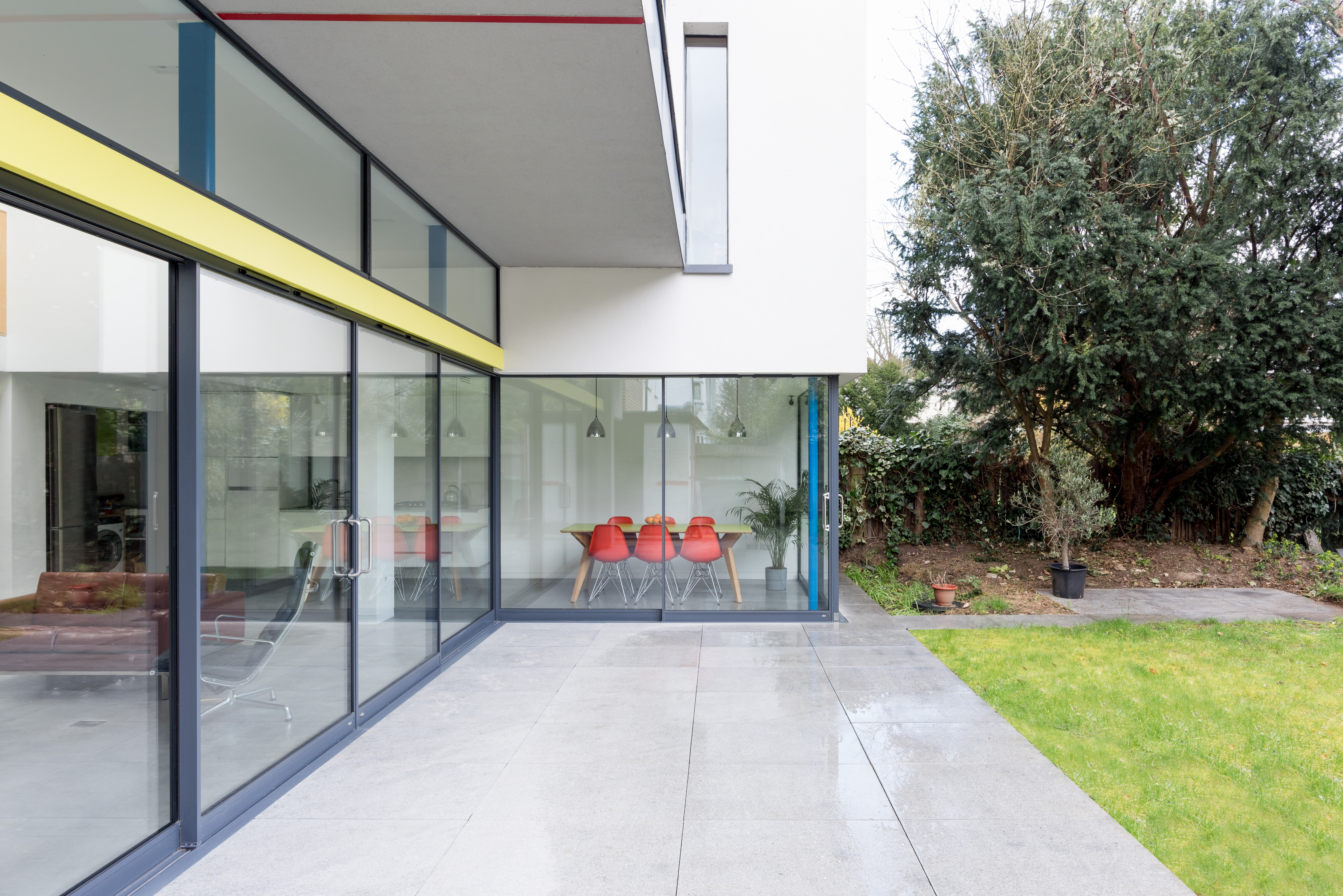
Emerging from the industrialization of design, new innovations, materials, and machines allowed Bauhaus architecture to be more (deceptively) simple than any style that went before it. It is often paired with minimalist interior design, as the two came to the fore at the same time and share a lot of the same tenets. Bauhaus architecture did away with the curlicues and ornate additions of the Victorian style that dominated the decades before, instead focussing on smooth curves, and the simplicity of rectangles.
Unlike the architecture that preceded it, most Bauhaus-style buildings were made from concrete, glass, steel, and chrome. Nothing was added for the sake of it — for the first time, beauty was seen and found in the structure itself, rather than decoration. Unlike Art Deco, which favored color — a trip to Miami will see a series of Art Deco buildings not dissimilar to Bauhaus in an array of ice cream shades — the Bauhaus movement tended towards grays, whites, creams. Nothing too distracting.
It was revolutionary. Bauhaus architecture was quick to build, and more affordable because of this. And using the latest material technology, it was also built to last.
When Did Bauhaus Architecture Originate?
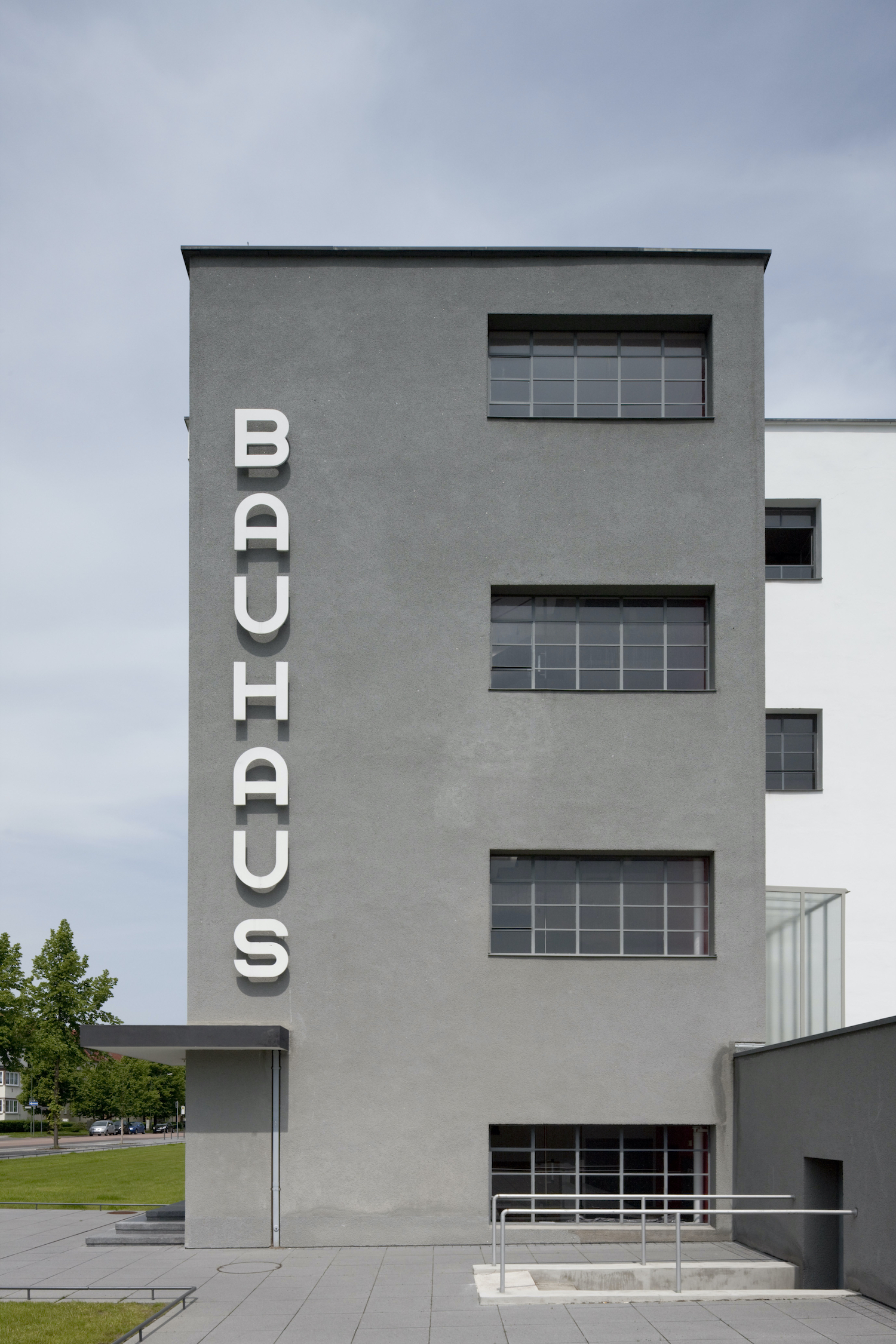
The Bauhaus itself was a design school founded in Germany by architect Walter Gropius in 1919, and so it is a design movement closely associated with the 1920s.
Be The First To Know
The Livingetc newsletters are your inside source for what’s shaping interiors now - and what’s next. Discover trend forecasts, smart style ideas, and curated shopping inspiration that brings design to life. Subscribe today and stay ahead of the curve.
By 1933 it has mostly disbanded, with many of the key figures dispersed across the world to escape their country's unrest. Aside from Gropius, key figures also included Marcel Breuer, who was in charge from 1924 to 1928. You may recognize his name as the designer of the iconic Wassily chair, a piece you'll likely have seen in countless architect's offices, vintage stores, and modern living rooms.
In fact, you could consider The Bauhaus as a Who's Who of contemporary design — Ludwig Mies van der Rohe was a director, and the textile designer Anni Albers also trained there. And while The Bauhaus disbanded after 14 short years, its legacy lives on today.
Why Is the Bauhaus Architectural Style Relevant Today?
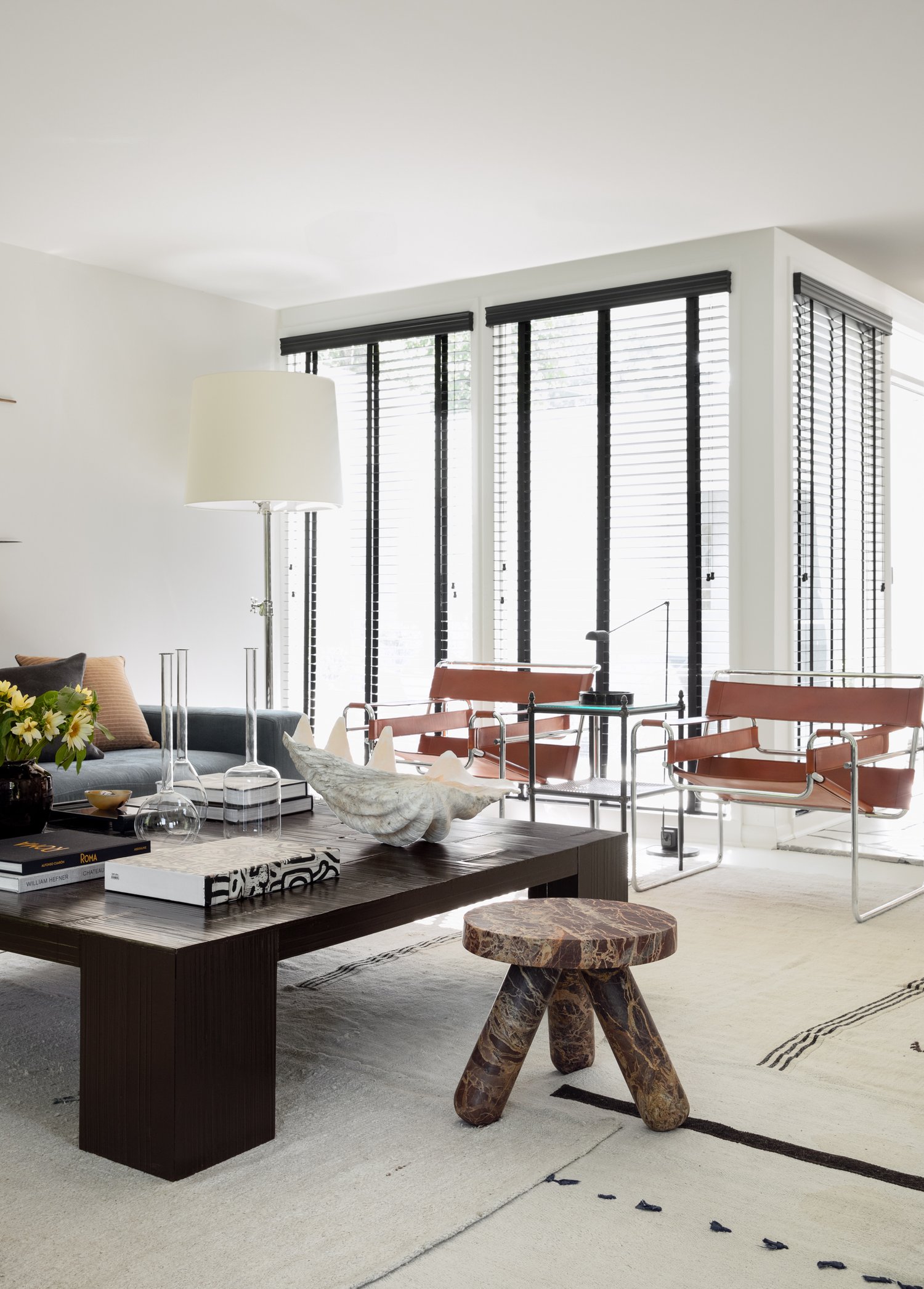
One of the biggest trends of the decade so far has been curves. Curved sofas, curved walls, curved fireplaces, curved sofas, curved storage — many of Livingetc's favorite designers like Bryan O'Sullivan, Pierre Yovanovitch, and YSL Studio have embraced them.
What these curves have done is soften spaces and give them a timeless elegance, smoothing off hard corners and making homes feel easy to glide around. They are exactly right for the convivial smartness we want our homes to have in 2025, and the style of curve that is on trend now has its routes in the Bauhaus movement.
More expansive than the Art Deco arch that that came before it and less decorative than the flourishes seen on Victorian gothic styles before that, the Bauhaus curve is gentle and enveloping, a subtle bend that feels luxe.
But this is just one example of the lasting impact of the Bauhaus design movement. In fact, the influence of Bauhaus on contemporary design is so pervasive that the late Terence Conran even went as far as to say, "It has an impact on everything I do".
What Are the Seven Characteristics of the Bauhaus Design?
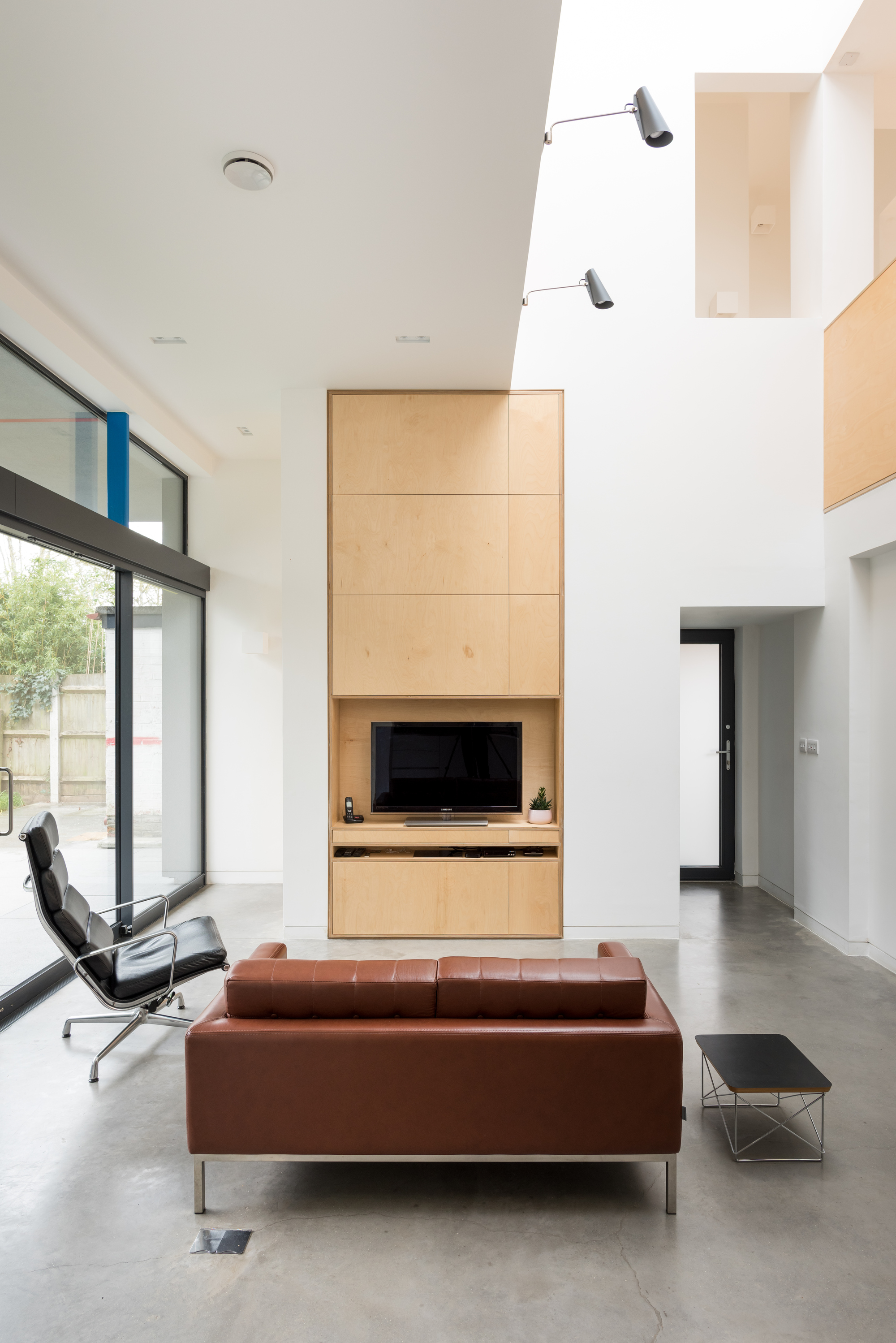
The ideas that came out of the Bauhaus movement were based on seven key characteristics. They were intended to harness the very best of the new technology available at the time, and to overthrow the shackles of Victorian-era design, and all the rigidity that came with it.
The seven characteristics of Bauhaus design are:
- That form always had to follow function, meaning that a product or home's aesthetic value was secondary to it serving its intended purpose.
- There was a focus on simplicity, and paring back unnecessary additions that got in the way of the purity of design.
- Minimalism emerged around the same time, and as such minimal ideals were a characteristic of Bauhaus, as practitioners hoped to celebrate a design's essence rather than what was layered on top.
- Bauhaus designs often featured geometric shapes and always focusses on clean lines.
- Because of what was happening in factories at the time, there was also a focus on newly available materials like concrete and steel or glass (that could now be used in bigger sheets), and there was a love of innovation and pushing the boundaries of what new methods of production could do.
How to Bring Bauhaus Into Modern Interiors
Less severe than Constructivism and more open to a playfulness with color than the modernism of Le Corbusier, for example, Bauhaus design works remarkably well as a contemporary interior design trend.
Incorporating Bauhaus into a modern interior can mean combining stark, geometric shapes with bold colors; it can also involve creating strong accents with abstract-printed textiles and bright-colored seating.
And color is important here, too. Bauhaus' iconic primary color palette of red, yellow, and blue (along with black and white), was influenced by Bauhaus artist Johannes Itten's early color theories, and reflected the movement's focus on balance and simplicity in design.
Of course, another easy was to reference the Bauhaus design movement in your modern interiors is through your choice of furnishings. There were many iconic pieces designed during the period, including those listed below.
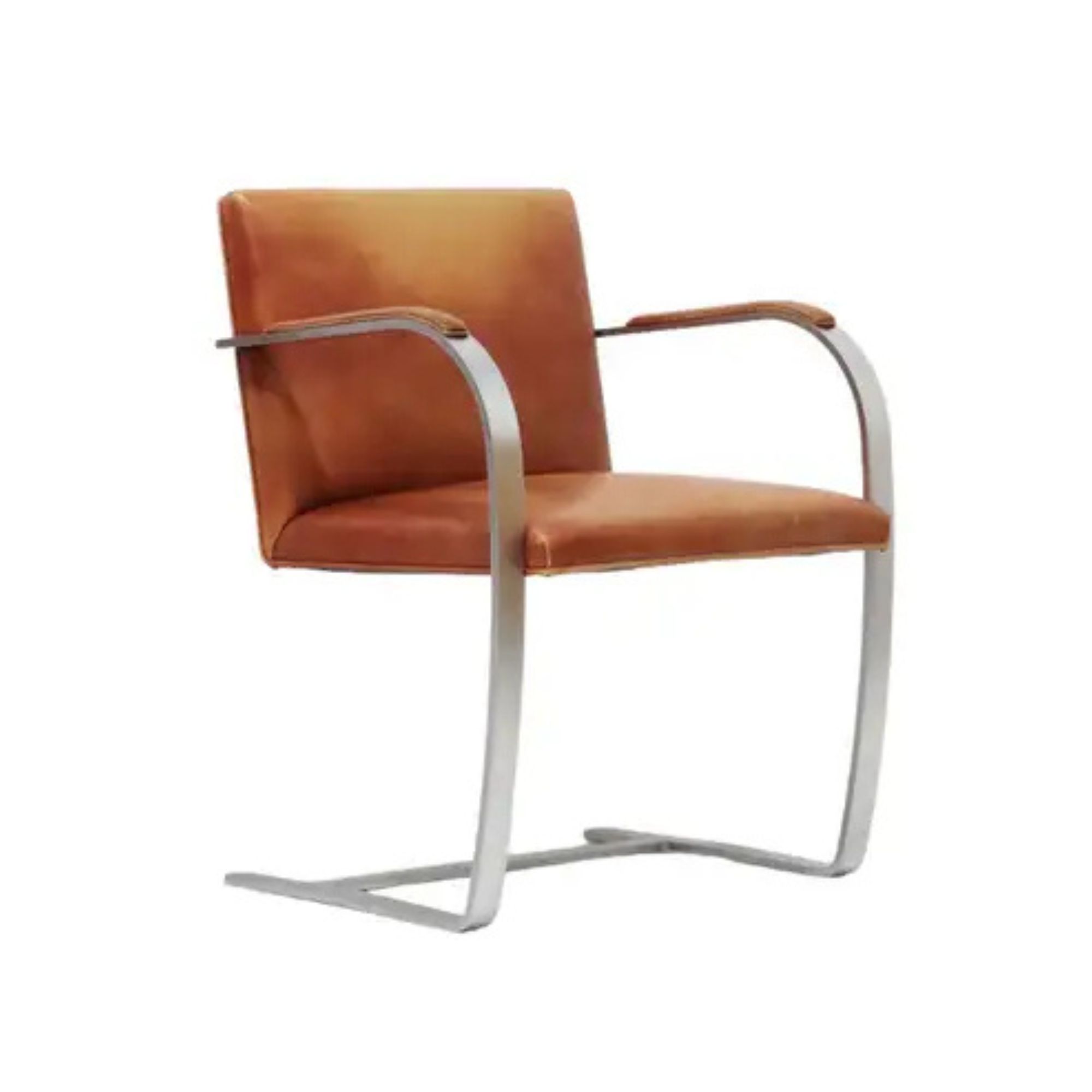
The iconic Brno Chair designed by Bauhaus architect Ludwig Mies van der Rohe sometime around 1930 reflects the design movement through its simplified C-shape form and cantilevered construction, replacing the need for four legs.
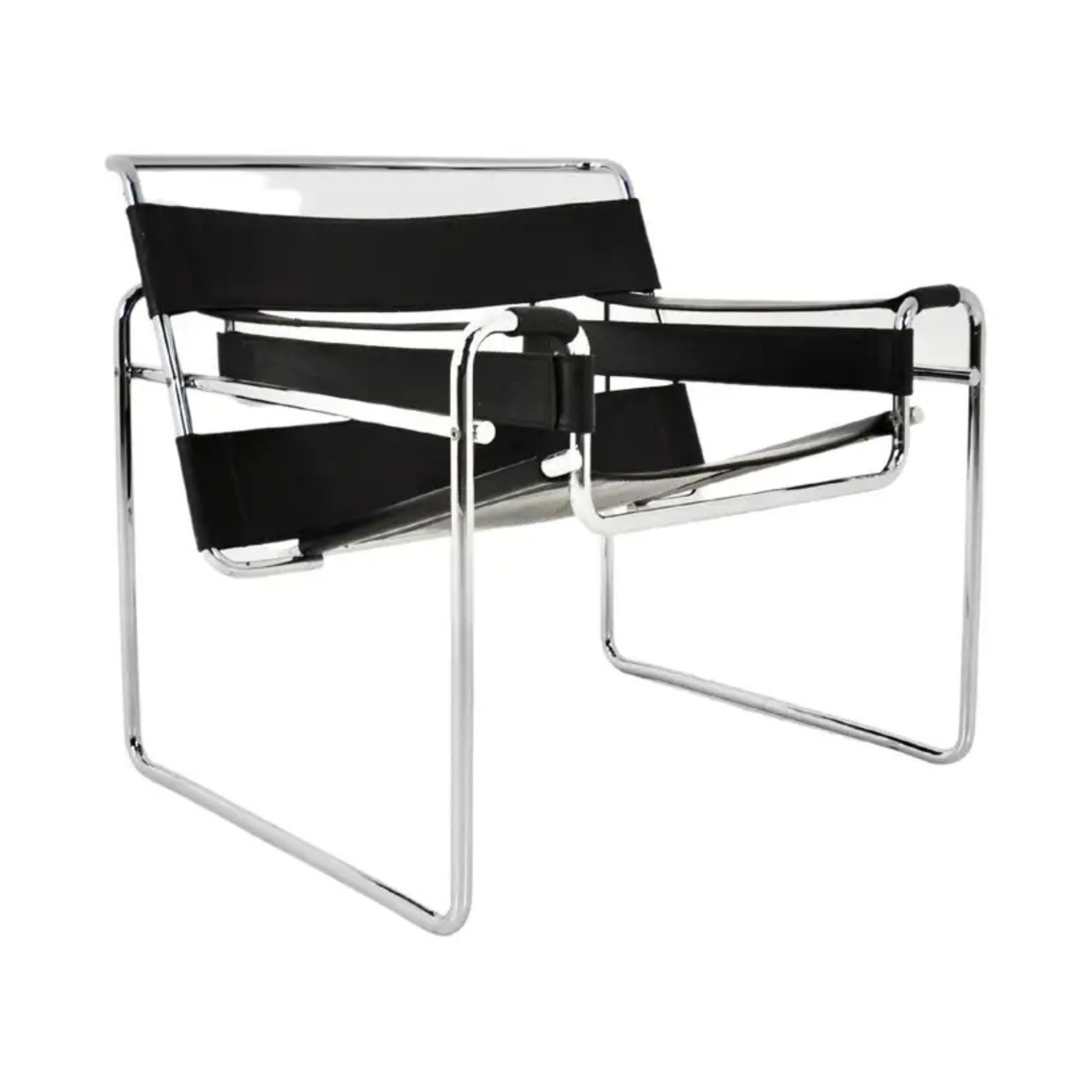
Marcel Breuer's Wassily chair is perhaps the most iconic piece of furniture to come out of this design movement. Also referred to as the Model B3 chair, it was designed sometime between 1925-1926, and is believed to have been inspired by the tubular metal form of a bicycle.
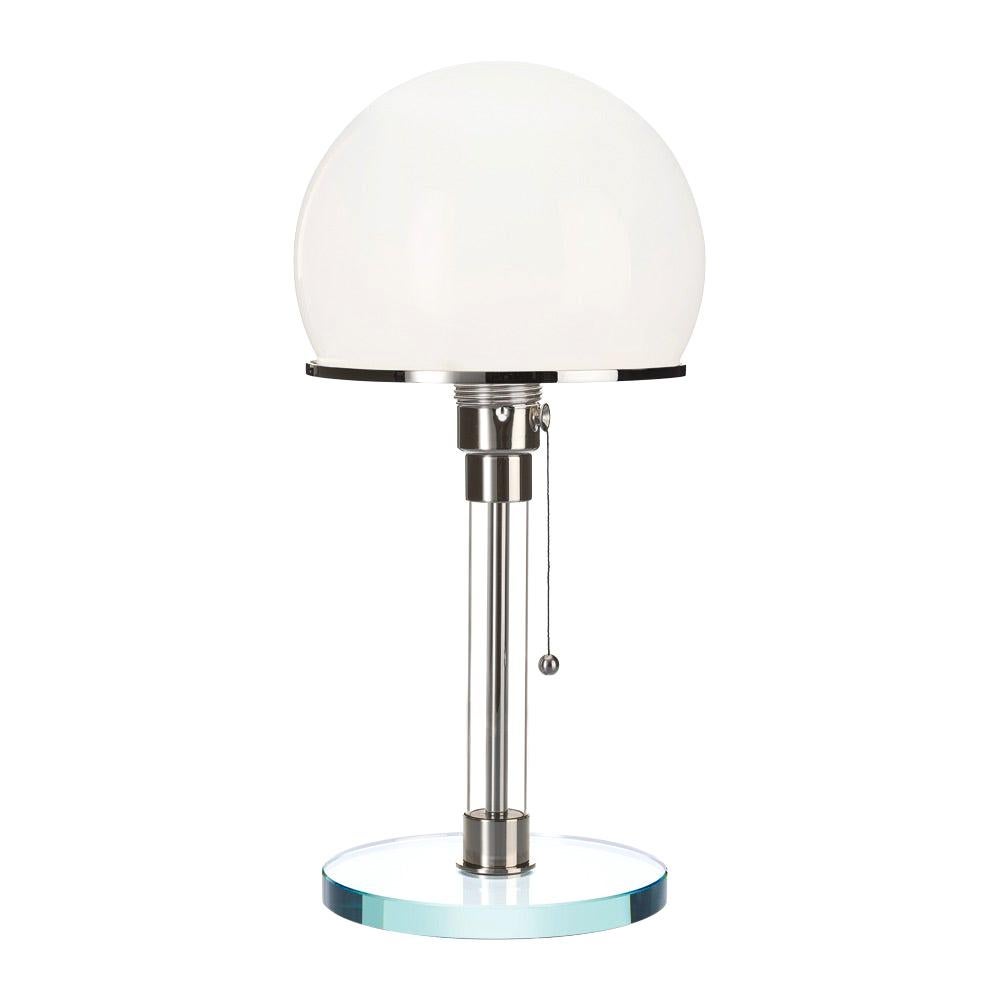
Wilhelm Wagenfeld designed this iconic lamp back in 1924. It was intended to look 'industrial' in nature, and reflected the Bauhaus principles of 'form follows functionality'. Crafted from cut glass and chrome details, it also showcases the material palette often referenced during the movement.
Why Was Bauhaus Controversial?
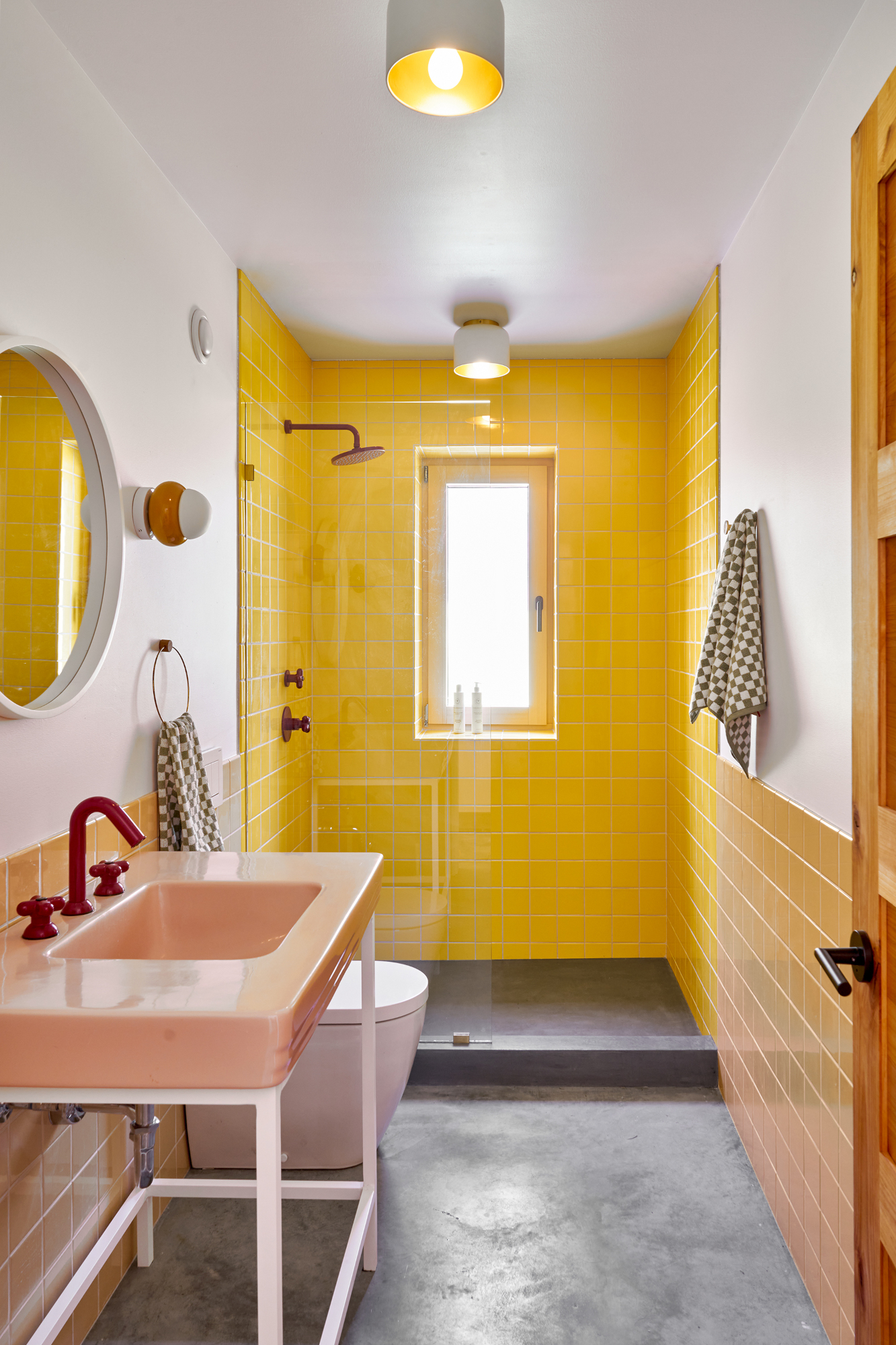
At the time, the pared back approach to design that the Bauhaus movement embraced was seen as hugely controversial. It was so much simpler and so much more raw than the heavily layered and decorated homes of the Victorian era.
Minimalism was thought by many as a radical new idea which was set to overthrow society's values of how a home should be, and was associated with a free-thinking attitude that the established order found threatening.
Politically, the Bauhaus design movement leaned towards socialism. It was about sharing ideas, a new urgency and collective creativity. Germany in the 1920s was all about political extremes, but the conservative mainstream found the Bauhaus set to be too daring, too left-wing, and too unsettling.
Where is Bauhaus architecture commonly found?
It's unsurprising that Germany, being the birthplace of the Bauhaus movement, sees a high concentration of Bauhaus architecture, particularly in Weimar, Dassau, and Berlin, where the headquarters were based (although they moved around a lot).
But many of the leading lights of the Bauhaus movement fled the country during World War II, taking their ideals with them. As such, Tel Aviv in Israel is a hub bursting with Bauhaus buildings, while founder Walter Gropius himself moved to Lincoln, Massachusetts, where the Gropius House still exists today.
Once you understand the history and lasting influence of the Bauhaus design movement, it's likely you'll discover you've actually already been inspired by it in your own home.
The editor of Livingetc, Pip Rich (formerly Pip McCormac) is a lifestyle journalist of almost 20 years experience working for some of the UK's biggest titles. As well as holding staff positions at Sunday Times Style, Red and Grazia he has written for the Guardian, The Telegraph, The Times and ES Magazine. The host of Livingetc's podcast Home Truths, Pip has also published three books - his most recent, A New Leaf, was released in December 2021 and is about the homes of architects who have filled their spaces with houseplants. He has recently moved out of London - and a home that ELLE Decoration called one of the ten best small spaces in the world - to start a new renovation project in Somerset.
-
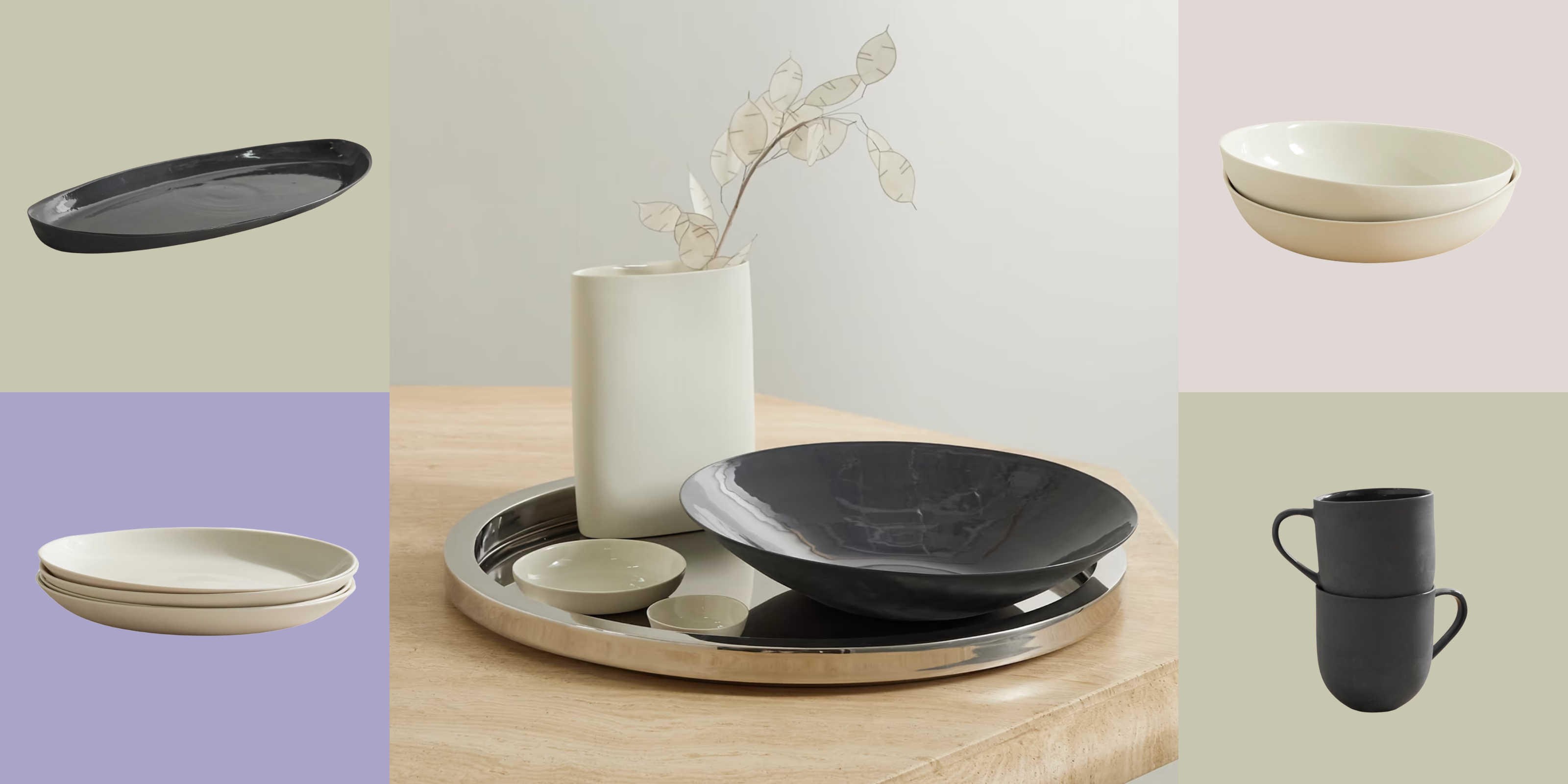 Turns Out, Sustainable Design Can Be Chic, and Net-a-Porter's 'Net Sustain' Curation Is Proof — Here's What I'm Shopping
Turns Out, Sustainable Design Can Be Chic, and Net-a-Porter's 'Net Sustain' Curation Is Proof — Here's What I'm ShoppingFrom the Net Sustain collection, Mud Australia's homeware is not only design-oriented, but eco-focused, too
By Devin Toolen
-
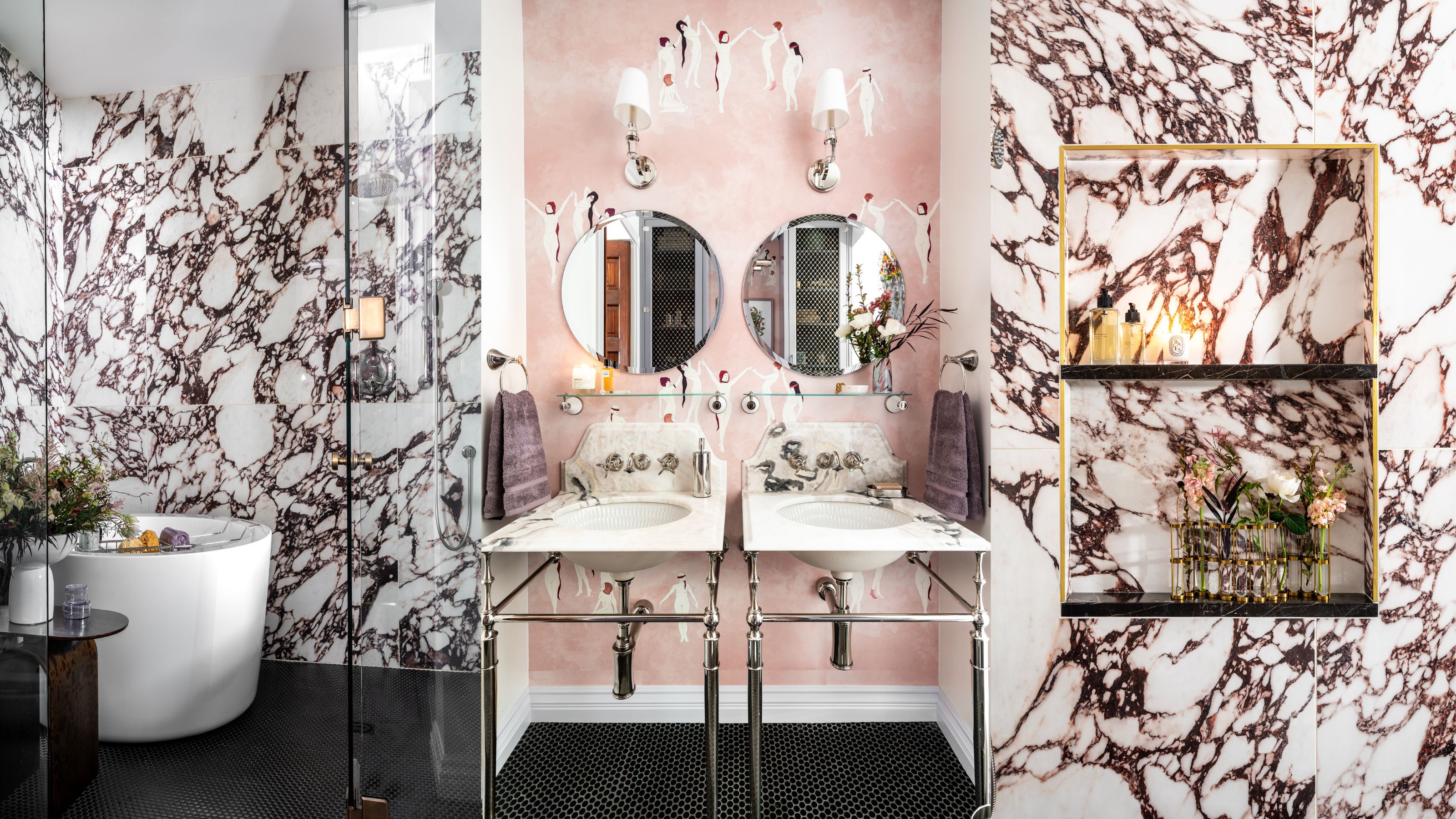 Before and After — How This Jewel-Box Bathroom Made the Most of Its Proportions With Maximalist Design and a 'Soaking Tub'
Before and After — How This Jewel-Box Bathroom Made the Most of Its Proportions With Maximalist Design and a 'Soaking Tub'This design offers a masterclass on creating a luxurious bathroom that is equally playful and elegant.
By Maya Glantz